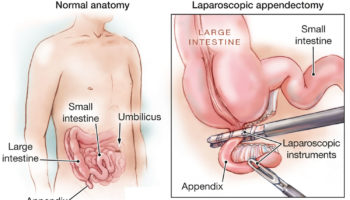Contents
What is spermicide
Spermicide is a type of chemical contraceptive that helps to prevent pregnancy by killing sperm or stopping sperm (inactivates sperm) from moving. Most spermicides in the United States contain a chemical called nonoxynol-9. Spermicide can be used alone or with all other barrier methods except the sponge, which already contains a spermicide. You can get spermicide over-the-counter. Spermicide is available in many different forms, including creams, gels, foams, films, suppositories and tablets.
Spermicide isn’t a very effective birth control method when used alone. However, you can use spermicide with a barrier method — such as a condom, diaphragm or cervical cap — to improve its effectiveness with preventing pregnancy. Spermicide doesn’t protect against sexually transmitted infections.
When used alone, a spermicide should be inserted into the vagina close to the cervix. You need to wait 10–15 minutes after insertion for the spermicide to become effective. Read the label carefully to see how long before sex you need to insert the spermicide into your vagina. Keep in mind that spermicides are effective for only 1 hour after they are inserted. You must reinsert spermicide for each act of sex. Do not douche or try to remove the spermicide for at least 6 hours after insertion.
Spermicide isn’t right for everyone. Your health care provider may discourage use of spermicide if:
- You’re at high risk of contracting HIV, or you have HIV or AIDS
- You have frequent urinary tract infections
- You’re at high risk of pregnancy — you’re younger than age 30 or you have sex three or more times a week
- You’re not likely to consistently use spermicide along with other barrier methods
Protection Against sexually transmitted infections (STIs) or sexually transmitted diseases (STDs)
Spermicides alone are NOT effective against sexually transmitted diseases (STDs). For those having sex, condoms must always be used with spermicide to protect against STDs. Spermicide, especially if used frequently, can cause irritation, which may increase the risk of getting HIV and other sexually transmitted infections.
Abstinence (not having sex) is the only method that always prevents pregnancy and STDs.
Spermicide Benefits
- Spermicides are easy to use and can be bought in many stores.
- They cost less to use than other birth control methods.
- They have no effect on a woman’s natural hormones.
- Spermicides do not affect milk supply if you are breastfeeding.
Spermicide possible risks and side effects
Spermicides may irritate the vagina and surrounding skin. This irritation may make it easier to be infected with sexually transmitted infections (STIs) like HIV. Another possible side effect is recurrent urinary tract infections because the spermicide can disrupt the normal balance of bacteria in a girl’s body.
- Spermicides can cause vaginal burning and irritation. Some people are allergic to spermicide and may have a reaction.
- Spermicides that contain nonoxynol-9 do not protect against sexually transmitted infections (STIs), including infection with human immunodeficiency virus (HIV), and may increase the risk of getting HIV from an infected partner if used many times a day. Spermicides should only be used if you have only one sexual partner and both of you are at low risk of HIV infection.
Who uses spermicide?
People who can take responsibility for planning birth control in advance of having sex and couples using condoms or other barrier methods of contraception who want extra protection against pregnancy use spermicides.
How do you get spermicide?
Spermicides are available without a prescription and are found in drugstores and some supermarkets (in some stores, they’re in the “Family Planning” aisle). They’re often found near the condoms and feminine hygiene products. But be careful when choosing a spermicide — the packages may look like those of some feminine hygiene products, such as douches or washes, which don’t provide any birth control protection at all.
How much does spermicide cost?
Depending on the type of spermicide you choose (film is more expensive than gel), spermicide costs only about $0.50 to $1.50 per use.
How does spermicide work
Spermicides immobilize and kill the sperm before they are able to swim into the uterus. To be effective, the spermicide must be placed deep in the vagina, close to the cervix. Creams, gels, and foams are squirted into the vagina using an applicator. Other types of spermicides include vaginal contraceptive film, a thin sheet placed in the back of vagina by hand, and vaginal suppositories.
Spermicides must be placed in the vagina before sexual intercourse. The instructions will say how long before sex the spermicide should be used. Some offer protection right away. But most must be placed in the vagina at least 15 minutes before sex so they have enough time to dissolve and spread.
All forms of spermicides are only effective for 1 hour after they are inserted. If more than 1 hour goes by before having sex, or if you have sex again, another application of spermicide is needed. When using spermicides, girls should not douche for at least 6 hours after having sex.
Figure 1. Female reproductive organ
Figure 2. Female Sex organ location and anatomy
How effective is spermicide
About 28 out of 100 women who use spermicide alone will get pregnant in the first year of typical use. What that means is that over the course of 1 year (12 months), about 28 out of 100 typical couples who rely on spermicide alone to prevent pregnancy will have an accidental pregnancy. Of course, this is an average figure and the chance of getting pregnant depends on whether you use spermicides correctly and every time you have sex. Spermicides are most effective when used in combination with another form of birth control. Unintended pregnancy rates with spermicide use alone are similar to that of the withdrawal (pulling out) method, with approximately 1 of 5 women having an unintended pregnancy each year 1. Ideally, spermicides should supplement mechanical barrier methods and should not be used as a sole source of contraception. Using backup birth control can reduce the risk of pregnancy.
Spermicide:
- Is most effective when used with a barrier method, such as a condom, diaphragm, contraceptive sponge or cervical cap
- Doesn’t require partner cooperation
- Doesn’t require a prescription
- Doesn’t have the same side effects as hormone-based birth control methods
- Increases lubrication during sex
Table 1: Effectiveness of Contraceptive Methods Comparison
| Pregnancies per 100 women in first 12 months of use | ||
|---|---|---|
| Contraceptive method | As commonly used | Perfect use |
| Oral contraceptives | ||
| Combined hormonal contraceptives | 9 | 0.3 |
| Progestin-only pills | 9 | 0.3 |
| Transdermal contraceptives | ||
| Combined hormonal contraceptives | 9 | 0.3 |
| Vaginal ring | ||
| Combined hormonal contraceptives | 9 | 0.3 |
| Injectable contraceptives | ||
| Depot medroxyprogesterone acetate | 6 | 0.2 |
| Progestin-only subdermal implant | 0.05 | 0.05 |
| Intrauterine devices | ||
| Levonorgestrel IUD | 0.2 | 0.2 |
| Copper IUD | 0.8 | 0.6 |
| Barrier contraceptives | ||
| Diaphragm with spermicide | 12 | 6 |
| Cervical cap Nulliparous women Parous women | 12 24 | 9 20 |
| Female condoms | 21 | 5 |
| Spermicides | 28 | 18 |
| Contraceptive sponge Nulliparous women Parous women | 12 24 | 9 20 |
| Male condoms | 18 | 2 |
| Sterilization | ||
| Female sterilization | 0.5 | 0.5 |
| Male sterilization | 0.15 | 0.1 |
| Fertility awareness-based methods | ||
| Lactation amenorrhea method | 2 | 0.5 |
| Coitus interruptus | 22 | 4 |
| Symptothermal | — | 0.4 |
| Ovulation method | — | 3 |
| Rhythm method | — | 5 |
| Contraception rate without birth control | ||
| No method | 85 | 85 |
In general, how well each type of birth control method works depends on a lot of things. These include whether a person has any health conditions or is taking any medications that might interfere with its use. It also depends on whether the method chosen is convenient — and whether the person remembers to use it correctly every time. Spermicides are not as effective on their own as other forms of birth control. However, they are convenient, inexpensive, and easy to use.
How to use spermicide
Before using spermicide, read the product instructions carefully. Consult your health care provider if you have any concerns.
To use spermicide:
- Choose a type of spermicide. Foams, gels and creams begin working immediately, while suppositories, films and tablets need to be inserted 10 to 30 minutes before sex to dissolve. If more than one hour passes between the application of spermicide and sex, reapply spermicide.
- Apply spermicide. Find a comfortable position, such as lying down. Using an applicator or your fingers, insert spermicide into your vagina on or near your cervix. If you use an applicator, fill the applicator with the recommended amount of cream, gel or foam and insert it into your vagina as far as it will go.
- Push the plunger on the applicator to release the spermicide near your cervix. To insert spermicide by hand, wash and dry your hands and place the suppository, film or tablet on your fingers. Slide your fingers along the back wall of your vagina as far as you can so that the spermicide covers or rests on or near your cervix. If you’re using spermicide with a diaphragm or cervical cap, follow the instructions that come with the device. If you have sex more than once, apply fresh spermicide before each sexual encounter.
- Be cautious after sex. For maximum effectiveness, make sure the spermicide remains in your vagina for at least six hours after sex. After six hours, there’s no need to clean any remaining spermicide from your vagina. Douching isn’t recommended — but if you choose to douche after sex, wait at least six hours.
Consult your health care provider if you have:
- Persistent vaginal irritation
- Recurring urinary tract infections
Spermicide side effects
Spermicide may increase your risk of getting urinary tract infections. Vaginal irritation — such as burning or itching or a rash — is the most common side effect of spermicide. Spermicide may also cause an allergic reaction.
Spermicide doesn’t prevent sexually transmitted infections. Using spermicide frequently may increase vaginal irritation, which may increase the risk of contracting HIV or other sexually transmitted infections. You shouldn’t use spermicide rectally because it may cause irritation and increase the risk of contracting sexually transmitted infections.
Spermicide may cause penile irritation or burning urination in your sexual partner.








